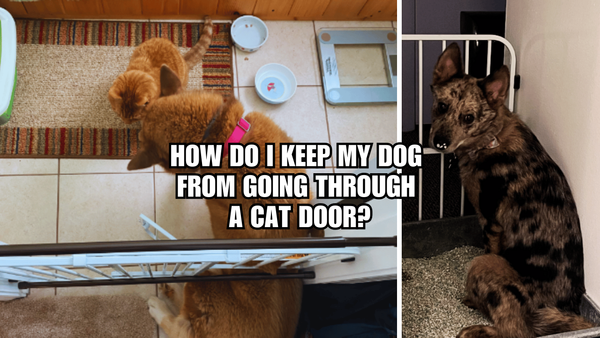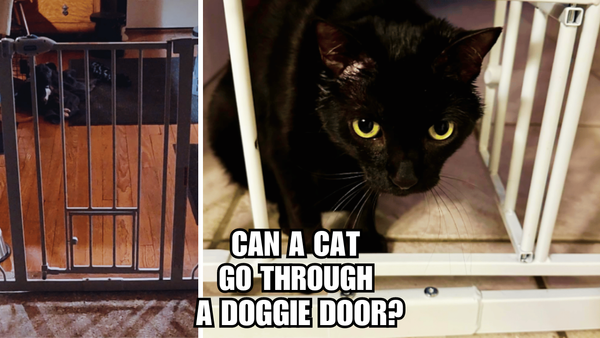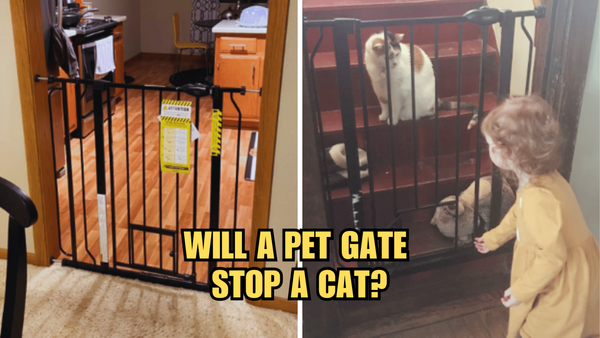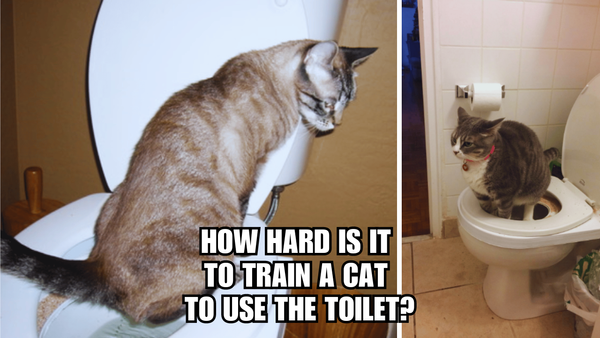Key Takeaways:
- Melatonin cat treats are designed to promote rest and relaxation in cats, potentially easing tension and reducing stress in stressful situations.
- It's important to choose treats with natural ingredients and to consult with a veterinarian before use, especially for pregnant animals or those with health conditions.
- While some cat owners report positive results, the effectiveness can vary depending on the individual cat and the situation.
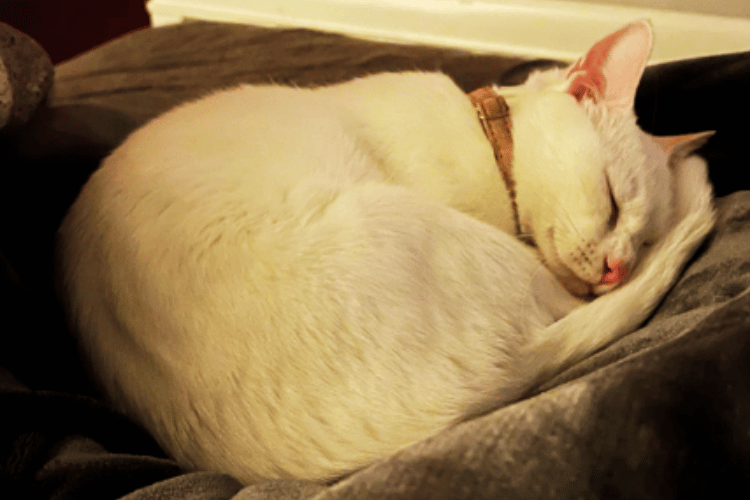
Cats, just like humans, can experience stress and anxiety that disrupt their daily lives and well-being. As pet owners, we seek ways to alleviate our furry companions' distress, often turning to products like calming treats.
Among these, melatonin cat treats have gained popularity, but the question remains: do melatonin cat treats work? This article delves into the science behind these treats, their ingredients, and their effectiveness in promoting relaxation and sleep in cats.
Understanding Melatonin and Its Role in Cats
Melatonin is a hormone naturally produced by the pineal gland in the brain, playing a crucial role in regulating sleep-wake cycles. In cats, as in humans, melatonin helps to signal the body that it's time to rest.
The use of melatonin supplements, including cat treats infused with this hormone, aims to mimic this natural process and induce a calming effect, especially during vet visits, travel, or other stressful situations.
The Ingredients in Melatonin Cat Treats
When considering melatonin treats for your feline friend, it's essential to examine the ingredients list. Many products, such as NaturVet Quiet Moments and others, contain a blend of melatonin with other calming ingredients like thiamine and L-tryptophan. These treats often include natural flavoring to appeal to cats and may contain additional components like ginger to support sensitive stomachs or cod liver oil for added health benefits.
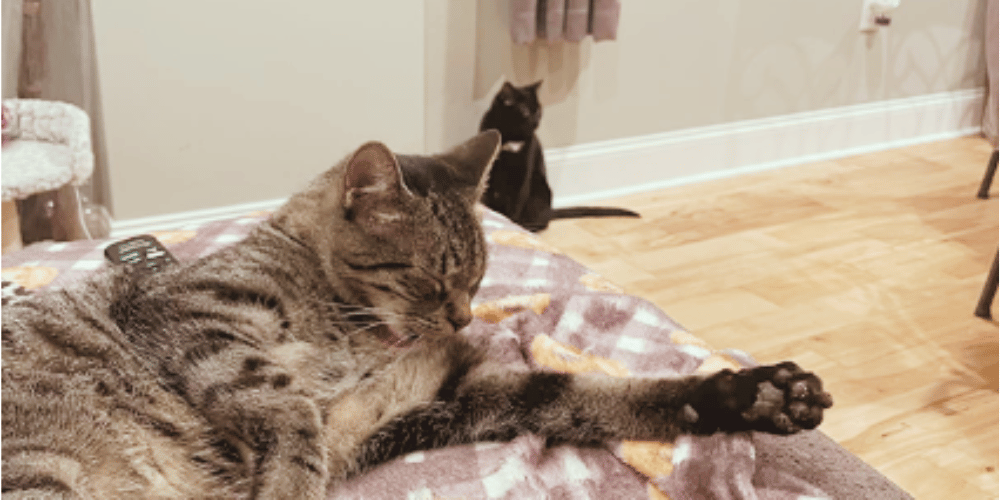
Are Melatonin Treats Safe for All Cats?
While melatonin treats can be safe when used appropriately, they are not suitable for all cats. Pregnant animals, for instance, should avoid these treats, and it's always recommended to consult with a veterinarian before introducing any new supplement to your pet's regimen. This is particularly important if your cat is on medication, as melatonin can interact with certain drugs, including MAO inhibitors.
How to Administer Melatonin Treats
Product administration is key to ensuring the safety and effectiveness of melatonin treats. Dosage instructions should be followed carefully, and it's important not to leave the package unattended where pets could accidentally overdose. Treats are typically offered in a tasty nature, such as salmon flavor or chicken, to encourage cats to consume them willingly.
The Science Behind Melatonin's Calming Effects
Research on melatonin's calming effects in cats is still evolving, but studies in humans and other animals suggest that it can help reduce stress and tension. Melatonin works by influencing the body's internal clock, promoting a sense of drowsiness and relaxation that can be particularly beneficial in easing anxiety during the night or in unfamiliar environments.
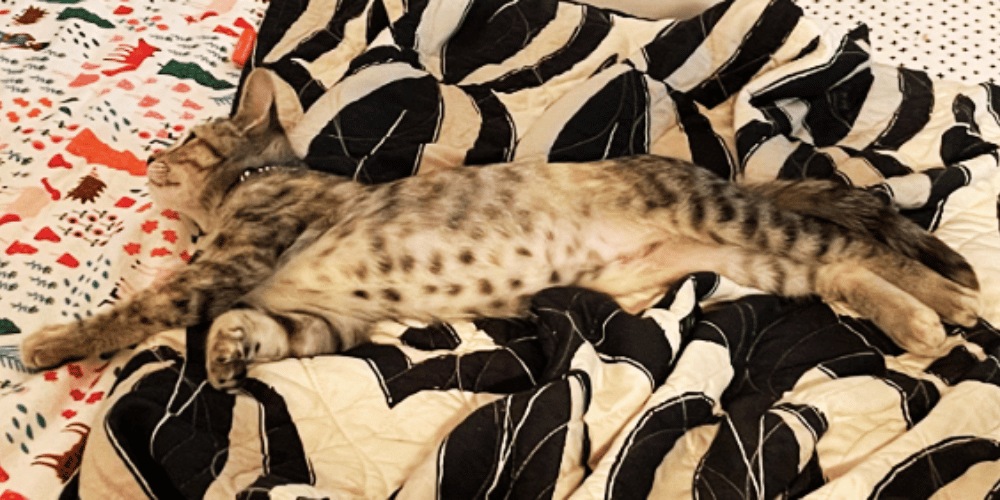
Choosing the Right Melatonin Treats for Your Cat
When selecting melatonin treats, look for products that are veterinarian formulated and contain natural ingredients. Avoid treats with artificial additives or excessive inactive ingredients. Brands like NaturVet often offer a variety of calming aids, including soft chews and calming room sprays, to cater to different preferences and needs. The Benefits of Active Ingredients in Melatonin Treats Cats, like their human companions, can experience stress and anxiety, which is where melatonin treats with active ingredients come into play.
Melatonin helps to promote a sense of calm and can be especially beneficial in stressful situations. Alongside melatonin, other active ingredients such as L-tryptophan help to enhance the calming effect. L-theanine, another common component, is known for its ability to ease tension and promote relaxation without causing drowsiness, making it an excellent addition to the melatonin treats.
In addition to these, some treats may include ginger supports sensitive stomachs, recognizing that anxiety can sometimes manifest in gastrointestinal discomfort for our feline friends. Thiamine and L-tryptophan are also often found in these treats, working synergistically to support the nervous system and help maintain a peaceful state. It's important to note that while these active ingredients are beneficial, the animal's condition worsens or if there is an accidental overdose, it's crucial to seek veterinary care immediately.
Choosing Quality Ingredients and Safe Practices for Cat Treats When selecting melatonin treats for your cat, it's essential to consider the quality of all ingredients, not just the active ones. For instance, brewer's dried yeast and wheat germ are nutritious fillers that also provide additional health benefits. Brewers dried yeast is a good source of B-vitamins which can help maintain healthy skin and coat, while wheat germ offers a rich source of natural vitamin E, known as mixed tocopherols, which act as a preservative and provide antioxidant benefits.
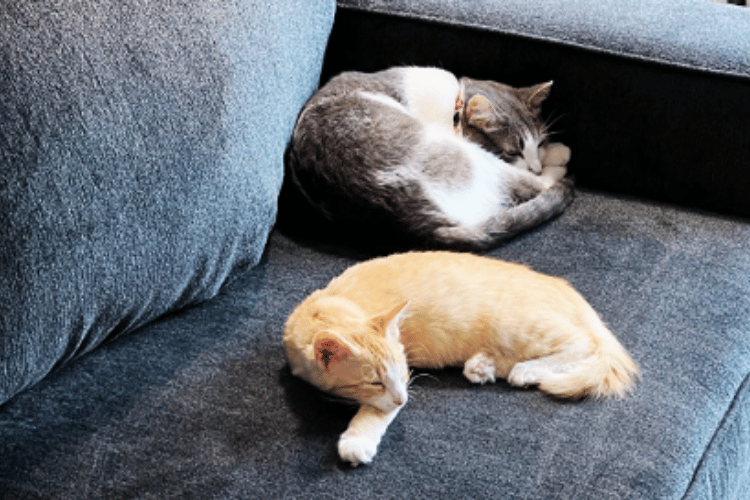
Moreover, it's crucial to ensure that the treats are manufactured with safety in mind. Look for products that specify they are for animal use only and check for the inclusion of sorbic acid, a safe preservative that helps extend the shelf life of the cat soft chews. Avoid leaving the package unattended to prevent any accidental overdose.
Additionally, some treats may contain vegetable oil or canola oil, which are healthy fats that can improve the texture of the treats and make them more palatable for your cat. Always store the treats as recommended and be mindful of the concomitant use of other supplements or medications.
The Benefits of L-Theanine in Feline Calming Treats L-Theanine is an amino acid commonly found in tea leaves and is gaining popularity as a calming aid in pet supplements. When combined with melatonin, L-Theanine helps to promote rest and relaxation in cats, particularly in stressful situations. This synergistic effect can be especially beneficial during events like thunderstorms, fireworks, or trips to the vet. The inclusion of L-Theanine in cat treats can provide a natural way to soothe your feline without resorting to pharmaceuticals.
Moreover, L-Theanine works by stimulating the production of alpha brain waves, which are associated with a state of "wakeful relaxation." This means that while your cat may feel more at ease, they are not sedated or lethargic. This is particularly important for pet owners who want to maintain their cat's quality of life by managing anxiety without compromising their pet's alertness and playfulness. Treats containing L-Theanine, often in combination with ingredients like thiamine mononitrate and brewer's dried yeast, offer a holistic approach to managing your cat's stress levels.
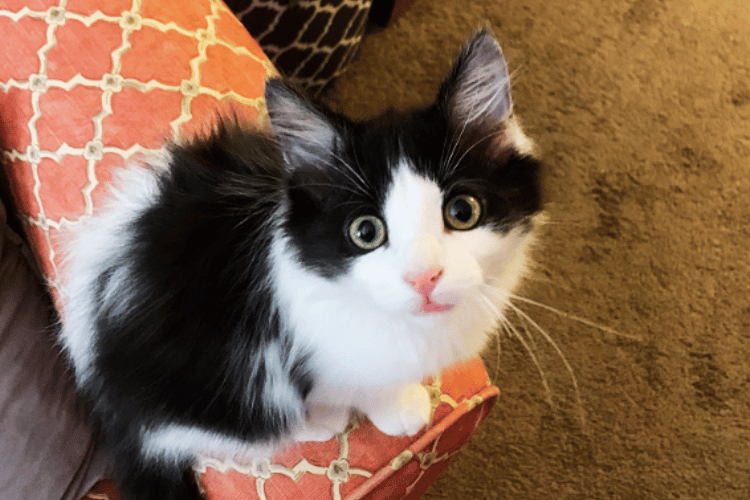
The Role of Dietary Supplements in Managing Feline Stress Incorporating dietary supplements into your cat's diet can be a proactive way to manage stress and anxiety. Ingredients like brewer's yeast, arabic gum, and tapioca starch not only serve as binders and fillers in treats but also provide nutritional benefits that support overall health. Brewer's yeast is rich in B-vitamins, which can help support the nervous system, while arabic gum is a source of fiber that aids in digestive health. Tapioca starch is a gluten-free carbohydrate that provides energy without the risk of allergic reactions.
Furthermore, dietary supplements like dried potato product and oat groats are often included in calming treats as sources of complex carbohydrates and fiber, which help to sustain energy levels and promote digestive health. These ingredients, along with calming room spray products, can create a comprehensive environment that supports your animal's condition.
It's important to monitor your pet's response to these supplements, as animals intended to benefit from such products should show signs of improvement. If your animal's condition worsens, it's crucial to consult a veterinarian and not leave package unattended, as proper storage is essential for maintaining the efficacy of these supplements.
Melatonin and Its Interaction with Other Supplements
When considering melatonin treats for your feline, it's essential to understand how melatonin interacts with other supplements. For instance, l-tryptophan is another amino acid that's often included in calming treats because of its role in serotonin production, which can aid in relaxation.
Combining melatonin with l-tryptophan can potentially enhance the calming effect, making it a powerful duo for managing your cat's stress levels. It's always advisable to consult with a veterinarian if your animal's condition worsens or if you're considering combining supplements.
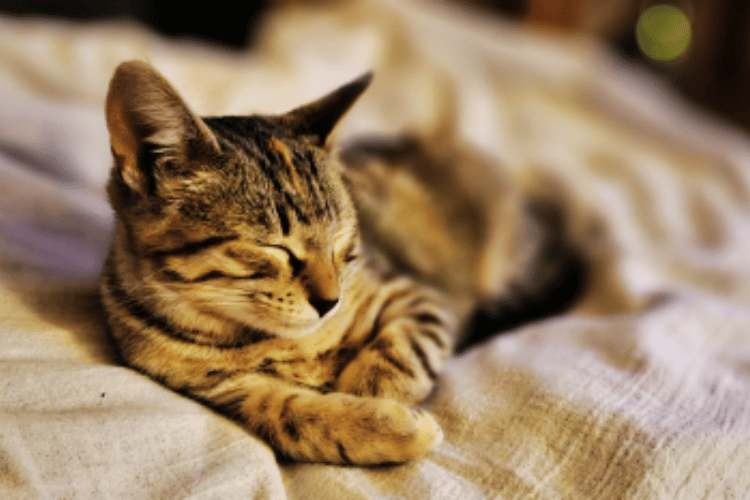
Moreover, other ingredients like l-theanine, which is commonly found in green tea, can also be included in the formulation of these treats. L-theanine promotes relaxation without drowsiness, which, when paired with melatonin, may provide a more balanced approach to stress relief. It's important to check the label for the exact composition, such as per soft chews, to ensure proper dosage and to understand the full spectrum of benefits your cat might receive from these combined supplements.
Melatonin Treats vs. Other Supplements: A Comparative Look
When considering melatonin treats for your feline, it's essential to compare them with other supplements that promise similar benefits. For instance, L-theanine is another popular ingredient found in calming products for cats. Unlike melatonin, which is a hormone, L-theanine is an amino acid that promotes relaxation without causing drowsiness.
It's often used in combination with melatonin to enhance the calming effect. Comparing the two can help you understand which might be more suitable for your cat's specific needs, especially if your animal's condition worsens despite using one of the supplements.
In addition to L-theanine, thiamine and L-tryptophan are also commonly used in calming treats. Thiamine, also known as Vitamin B1, plays a crucial role in nerve function and can help reduce stress. L-tryptophan is an amino acid that serves as a precursor to serotonin, a neurotransmitter that regulates mood and sleep. These ingredients can be found in various concentrations per soft chews, and understanding their individual and combined effects can guide you in selecting the right product for your pet's well-being.
The Role of Nutritional Ingredients in Calming Treats
Calming treats for cats often contain a blend of nutritional ingredients that support overall health while addressing anxiety and stress. Brewer's dried yeast is one such ingredient that not only enhances flavor but also provides a rich source of B-vitamins and antioxidants.
The presence of brewer's yeast in cat treats can support healthy skin, coat, and digestion, which indirectly contributes to a cat's well-being and stress levels. It's important to note that the quality of ingredients like dried yeast canola oil can vary, so looking for high-quality sources is key to the efficacy of the treats.
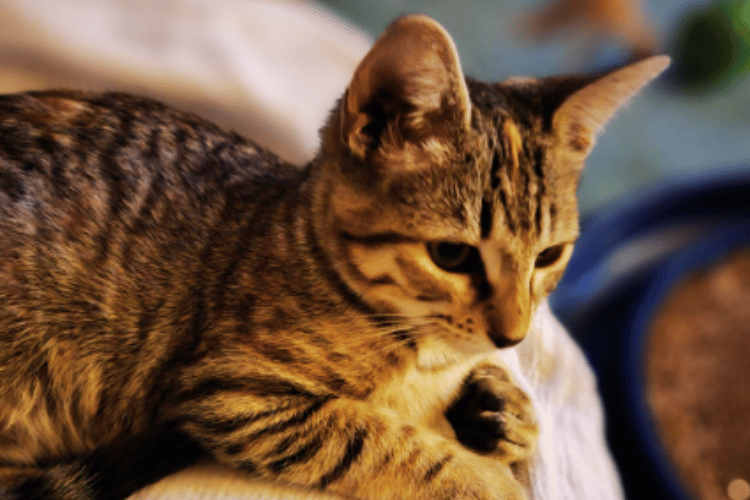
Furthermore, the inclusion of essential fatty acids, typically found in canola oil, can have anti-inflammatory properties and promote brain health. When combined with melatonin or other calming agents, these nutritional ingredients create a multifaceted approach to managing your cat's stress and anxiety. By providing a treat that not only calms but also nourishes, you're investing in your cat's overall health and happiness, which is particularly beneficial if your cat's condition requires long-term management.
The Benefits of Natural Ingredients in Cat Treats
In the quest for natural solutions to ease our pets' anxiety, ingredients like brewer's dried yeast and canola oil are often incorporated into cat treats. Brewer's yeast is a rich source of B-vitamins, which can help maintain healthy skin and coat, while also potentially aiding in stress management. Thiamine and l-tryptophan, both found in brewer's yeast, are known to have a soothing effect on cats, especially in a stressful situation.
Additionally, canola oil is included for its omega-3 and omega-6 fatty acids, which can promote brain health and potentially reduce anxiety. The combination of these natural ingredients in a treat, plus melatonin, offers a multifaceted approach to calming your cat. It's not just about the immediate soothing effect but also about supporting overall well-being, which can contribute to a more relaxed and happy pet in the long term.
Potential Side Effects and Precautions
While melatonin treats are generally considered safe, they can cause side effects in some cats. These may include drowsiness, gastrointestinal upset, or changes in behavior. If your animal's condition worsens after administering melatonin treats, it's crucial to seek veterinary advice promptly.
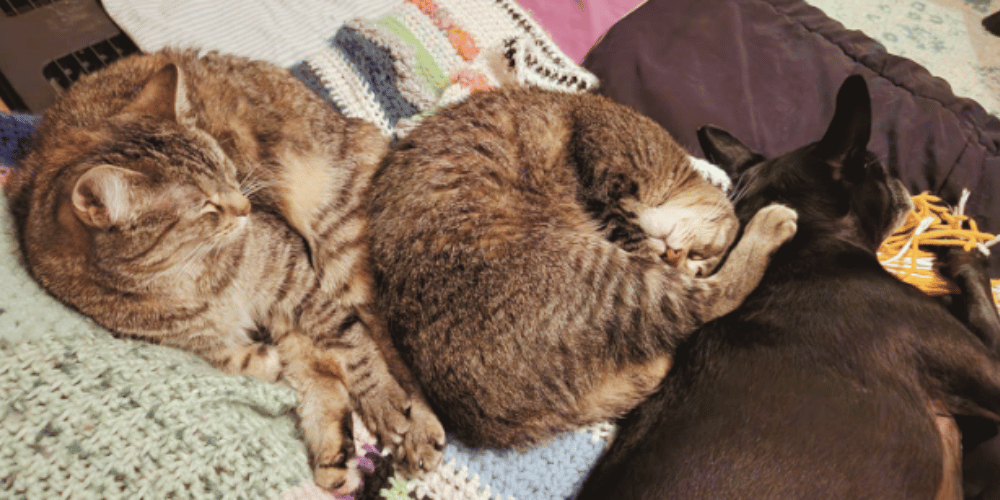
The Role of Other Ingredients in Calming Treats
In addition to melatonin, calming treats may contain a unique blend of thiamine, L-theanine, and other natural ingredients designed to support relaxation. Ingredients like brewer's dried yeast, flaxseed meal, and rice flour not only contribute to the treat's structure but may also offer nutritional benefits.
Real-Life Success Stories with Melatonin Treats
Many cat owners have shared positive experiences with melatonin treats, noting a relaxing effect on their pets during thunderstorms, fireworks, or separation anxiety. These anecdotal reports suggest that, for some cats, these treats can indeed help promote rest and relaxation.
When to Use Melatonin Treats for Your Cat
Melatonin treats are often used to help cats cope with specific situations that may cause anxiety, such as travel, vet visits, or changes in the household. They can also be helpful for managing behavioral issues related to the heat cycle or for cats with a history of sleep disturbances.
Alternatives to Melatonin Treats
For pet owners who prefer not to use melatonin treats or whose cats may not respond well to them, there are other options available. Natural calming aids like rosemary extract, calming room sprays, or pheromone diffusers can also be effective in creating a soothing environment for your cat.
The Importance of a Holistic Approach to Cat Anxiety
While melatonin treats can be a helpful tool in managing feline anxiety, they should be part of a broader, holistic approach that includes environmental enrichment, behavioral modification, and, when necessary, professional consultation with a veterinarian or animal behaviorist.
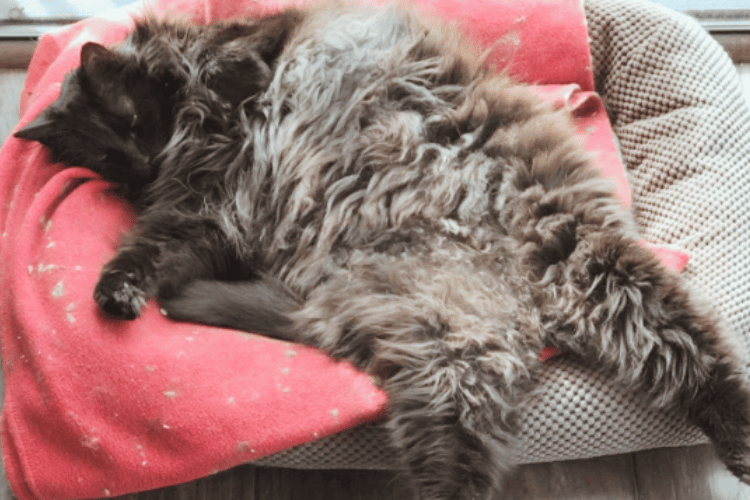
Summary
Melatonin cat treats are designed to help cats relax and cope with stress, but their effectiveness can vary. It's important to choose high-quality treats with natural ingredients and to consult with a veterinarian, especially for cats with health conditions or those that are pregnant. While some cat owners report success with these treats, they should be used as part of a comprehensive approach to managing your cat's anxiety and well-being.
FAQ Section
Can melatonin treats be used for all cats?
Melatonin treats are not suitable for all cats, particularly pregnant animals or those with certain health conditions. Always consult with a veterinarian before introducing any new supplement to your cat's diet.
Are there any side effects associated with melatonin cat treats?
Some cats may experience side effects such as drowsiness, gastrointestinal upset, or changes in behavior. If you notice any adverse reactions, contact your veterinarian.
How often can I give my cat melatonin treats?
Follow the dosage instructions on the product label, and do not exceed the recommended amount. The frequency of administration will depend on your cat's individual needs and the advice of your veterinarian.
Thank you for visiting LegitLists we hope this helps you make a legitimate choice!


